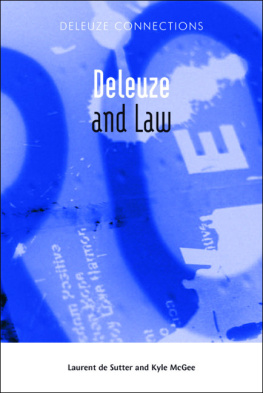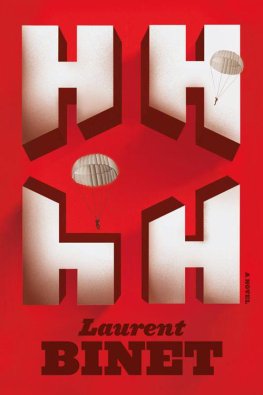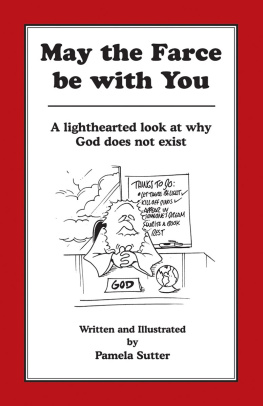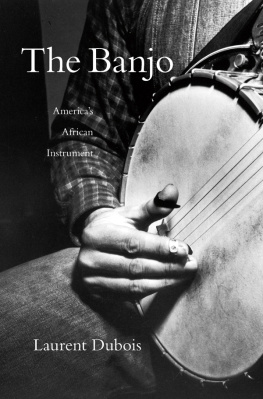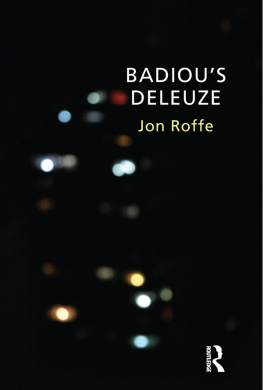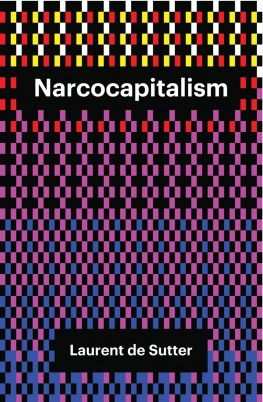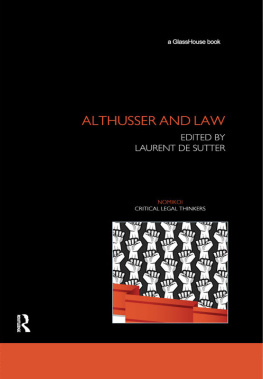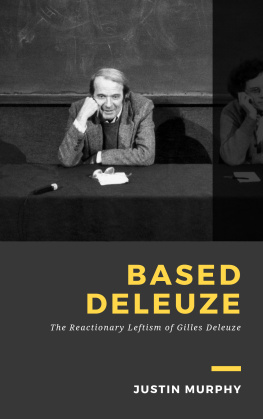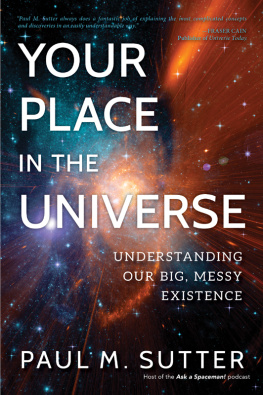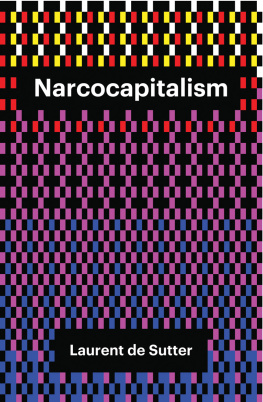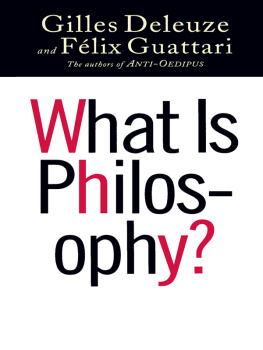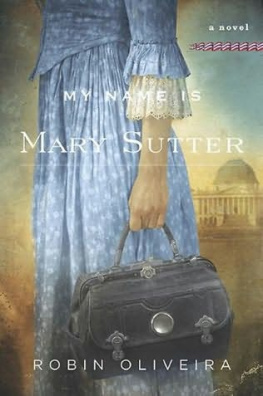Laurent de Sutter and Kyle McGee - Deleuze and Law
Here you can read online Laurent de Sutter and Kyle McGee - Deleuze and Law full text of the book (entire story) in english for free. Download pdf and epub, get meaning, cover and reviews about this ebook. year: 2012, publisher: Edinburgh University Press, genre: Politics. Description of the work, (preface) as well as reviews are available. Best literature library LitArk.com created for fans of good reading and offers a wide selection of genres:
Romance novel
Science fiction
Adventure
Detective
Science
History
Home and family
Prose
Art
Politics
Computer
Non-fiction
Religion
Business
Children
Humor
Choose a favorite category and find really read worthwhile books. Enjoy immersion in the world of imagination, feel the emotions of the characters or learn something new for yourself, make an fascinating discovery.
- Book:Deleuze and Law
- Author:
- Publisher:Edinburgh University Press
- Genre:
- Year:2012
- Rating:5 / 5
- Favourites:Add to favourites
- Your mark:
- 100
- 1
- 2
- 3
- 4
- 5
Deleuze and Law: summary, description and annotation
We offer to read an annotation, description, summary or preface (depends on what the author of the book "Deleuze and Law" wrote himself). If you haven't found the necessary information about the book — write in the comments, we will try to find it.
Deleuze and Law — read online for free the complete book (whole text) full work
Below is the text of the book, divided by pages. System saving the place of the last page read, allows you to conveniently read the book "Deleuze and Law" online for free, without having to search again every time where you left off. Put a bookmark, and you can go to the page where you finished reading at any time.
Font size:
Interval:
Bookmark:


Deleuze and Law

Deleuze Connections
It is not the elements or the sets which define the multiplicity. What defines it is the AND, as something which has its place between the elements or between the sets. AND, AND, AND stammering.
Gilles Deleuze and Claire Parnet, Dialogues
General Editor
Ian Buchanan
| Editorial Advisory Board | |
| Keith Ansell-Pearson | Gregg Lambert |
| Rosi Braidotti | Adrian Parr |
| Claire Colebrook | Paul Patton |
| Tom Conley | Patricia Pisters |
Titles Available in the Series
Ian Buchanan and Claire Colebrook (eds), Deleuze and Feminist Theory
Ian Buchanan and John Marks (eds), Deleuze and Literature
Mark Bonta and John Protevi (eds), Deleuze and Geophilosophy
Ian Buchanan and Marcel Swiboda (eds), Deleuze and Music
Ian Buchanan and Gregg Lambert (eds), Deleuze and Space
Martin Fuglsang and Bent Meier Srensen (eds), Deleuze and the Social
Ian Buchanan and Adrian Parr (eds), Deleuze and the Contemporary World
Constantin V. Boundas (ed.), Deleuze and Philosophy
Ian Buchanan and Nicholas Thoburn (eds), Deleuze and Politics
Chrysanthi Nigianni and Merl Storr (eds), Deleuze and Queer Theory
Jeffrey A. Bell and Claire Colebrook (eds), Deleuze and History
Laura Cull (ed.), Deleuze and Performance
Mark Poster and David Savat (eds), Deleuze and New Technology
Simone Bignall and Paul Patton (eds), Deleuze and the Postcolonial
Stephen Zepke and Simon OSullivan (eds), Deleuze and Contemporary Art
Laura Guillaume and Joe Hughes (eds), Deleuze and the Body
Daniel W. Smith and Nathan Jun (eds), Deleuze and Ethics
Frida Beckman (ed.), Deleuze and Sex
David Martin-Jones and William Brown (eds), Deleuze and Film
Laurent de Sutter and Kyle McGee (eds), Deleuze and Law
Forthcoming Titles in the Series
Rebecca Coleman and Jessica Ringrose (eds), Deleuze and Research Methodologies
Inna Semetsky and Diana Masny (eds), Deleuze and Education
Visit the Deleuze Connections website at
www.euppublishing.com/series/delco

Deleuze and Law

Edited by Laurent de Sutter
and Kyle McGee
EDINBURGH
University Press
editorial matter and organisation Laurent de Sutter and Kyle McGee, 2012
the chapters their several authors
Edinburgh University Press Ltd
22 George Square, Edinburgh EH8 9LF
www.euppublishing.com
Typeset in 10.5/13 Adobe Sabon
by Servis Filmsetting Ltd, Stockport, Cheshire,
and printed and bound in Great Britain by
CPI Group (UK) Ltd, Croydon CR0 4YY
A CIP record for this book is available from the British Library
ISBN 978 0 7486 4414 8 (hardback)
ISBN 978 0 7486 4413 1 (paperback)
ISBN 978 0 7486 6454 2 (webready PDF)
ISBN 978 0 7486 5539 7 (epub)
ISBN 978 0 7486 5538 0 (Amazon ebook)
The right of the contributors
to be identified as author of this work
has been asserted in accordance with
the Copyright, Designs and Patents Act 1988.

Contents


Introduction
Laurent de Sutter and Kyle McGee

During his long conversation with Claire Parnet, filmed by the late Pierre-Andr Boutang and published after his death, Gilles Deleuze made a strange revelation: If I hadnt become a philosopher, he said, I would have studied law (Deleuze 1994a: G comme Gauche). Before intellectual biographer Franois Dosse summoned it to discuss Deleuzes academic history and to describe his course of study (Dosse 2007: 141), this declaration provoked hardly a comment in the Francophone world, as though it was not surprising in the least that Deleuze, inventor of the rhizome, philosopher of pure immanence, and sometime revolutionary, had dreamt of studying law, that arboreal science of reactionary transcendence. This utterance sits uneasily with Deleuzes well-known antipathy towards the representational economy of generality and particularity as well as the logic of profit and loss that forms the heart of modern instrumentalist legality. More, the image of a philosopher hostile towards the very idea of judgment Deleuzes ethics, as we know, constitutes a war machine bent on undermining the diabolical apparatus of judgment and the logic of infinite debt does not dovetail neatly with this expression of interest in law as an alternative to philosophy. We may hear Deleuzes remark as giving voice to an irretrievable moment in his past, a reflection on and a reference to lost time, to the adolescence of one who was not yet present, or who was, in a word, yet to strike out on his own. But the more useful audition of this puzzling claim is to give it our full attention and to acknowledge that it does not merely sit uneasily with his mature work, but actively deterritorialises it. It is time now that we problematised all these tensions, contradictions and aberrant lines by making Deleuzes work as a whole pass through this opening.
That is, in short, the object of this book. Our job is only to provide the window-dressing, this Introduction and the concluding Postscript a humble enough but, in fact, a very demanding job. We are tasked with saying something, but not too much; with laying a foundation but leaving it bare, sacrificing control over what happens next; with attracting your interest, but refraining from alienating you (whats the point, we hear Kafka saying). We would like, therefore, to introduce in this text merely a handful of notions, intuitions and semi-formed concepts that may be valuable from the perspective of the reader about to plunge into Deleuze and Law for the first time. (As will become evident, we love our contributors passionately and fully expect that you will too, and so you will return to read this book again.)
Lets return for just a moment to the connection Deleuze draws between law and philosophy by situating himself as its vertex. Reflecting on the hesitation that he felt when the time came to choose an academic curriculum, Deleuze added that he continued to be interested in law despite choosing philosophy. Instead of some kind of intellectual teenage fling, law never ceased to haunt his philosophical work. The science of the case practised in law courts on a daily basis was for him such an object of admiration that one may hazard the thesis that philosophy was never an exclusive pursuit for the young Gilles or even the mature Professor Deleuze, that his perspective on philosophy was always informed by law to a substantial degree. We know that he came to the subject of his thesis, David Hume, through the concept of law, we know that he counted himself a casuist by the 1960s, and we know that his literary studies are shot through with elements that can only be called legal. Sacher-Masoch, Kafka, Melvilles Bartleby, the Proustian law of love, and others again: these are the objects of a deeply jurisprudential philosophical engagement with literature. There was something like regret in his voice when he spoke to Parnet about law: the regret that philosophy, at least as it was practised in mid-century Europe, was not enough. And when one reads Deleuzes work while keeping that hint of regret in mind the regret concerning the importance, the exemplarity of law one cannot resist the conclusions that form the taproot of this collaboration. From
Font size:
Interval:
Bookmark:
Similar books «Deleuze and Law»
Look at similar books to Deleuze and Law. We have selected literature similar in name and meaning in the hope of providing readers with more options to find new, interesting, not yet read works.
Discussion, reviews of the book Deleuze and Law and just readers' own opinions. Leave your comments, write what you think about the work, its meaning or the main characters. Specify what exactly you liked and what you didn't like, and why you think so.

